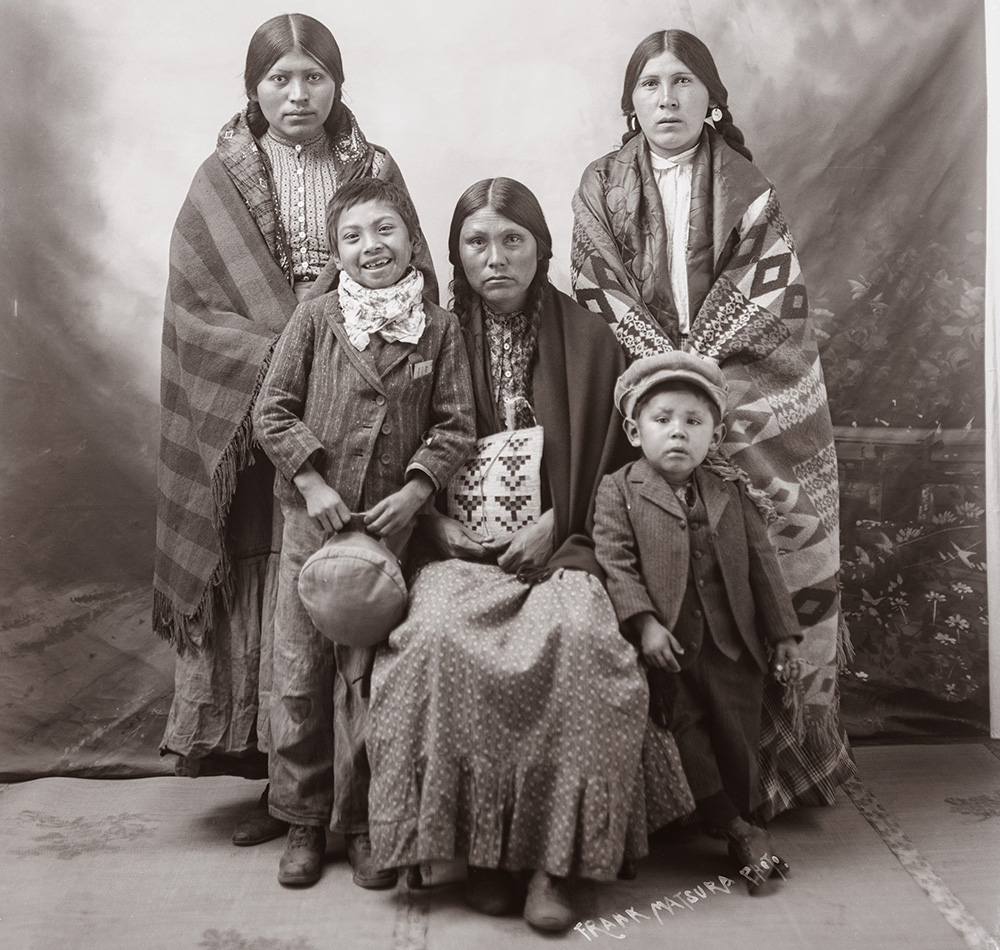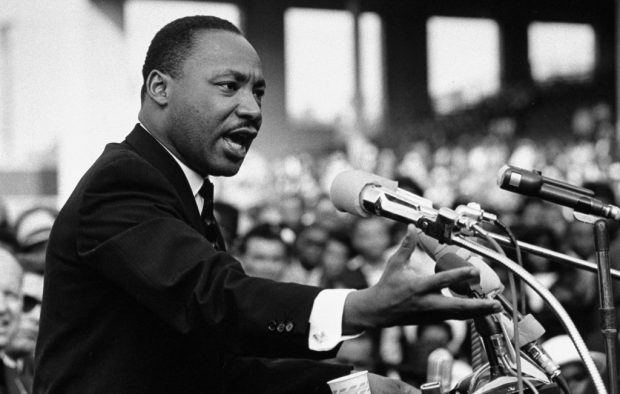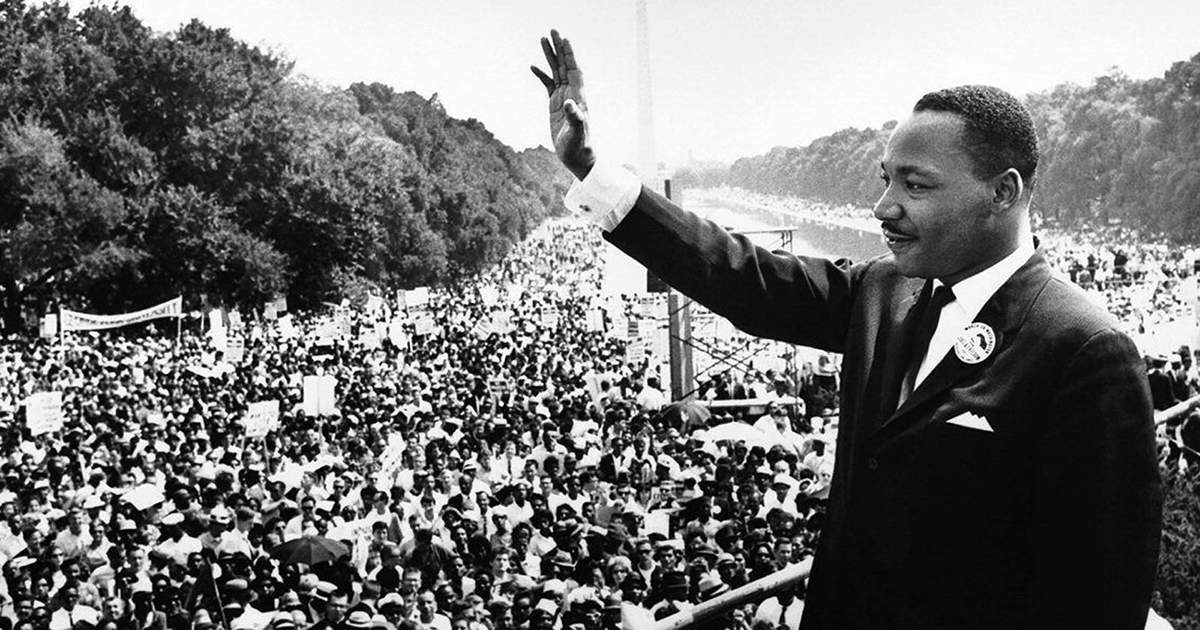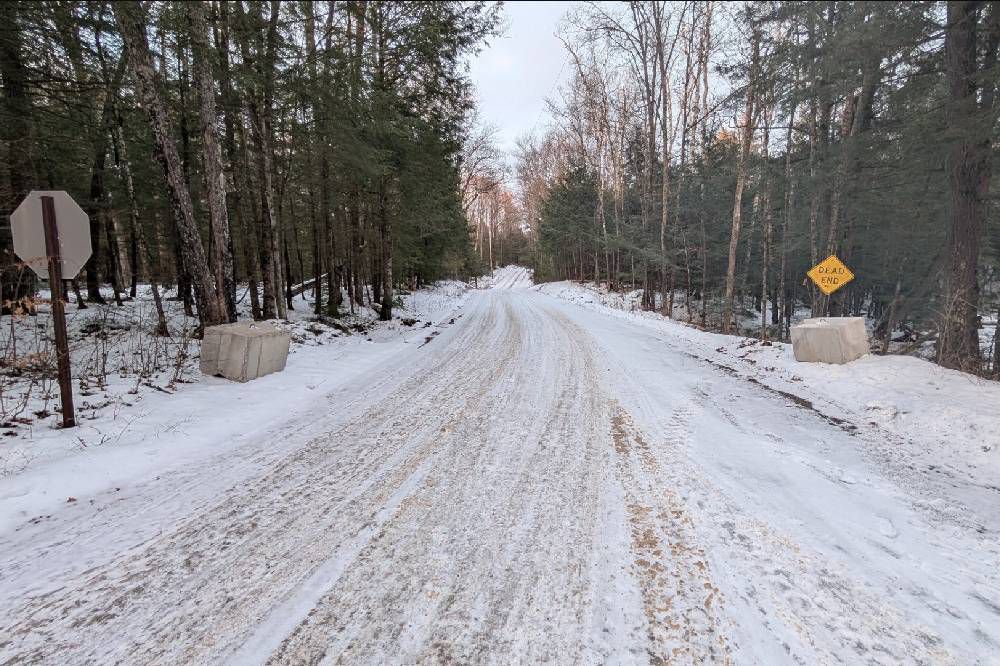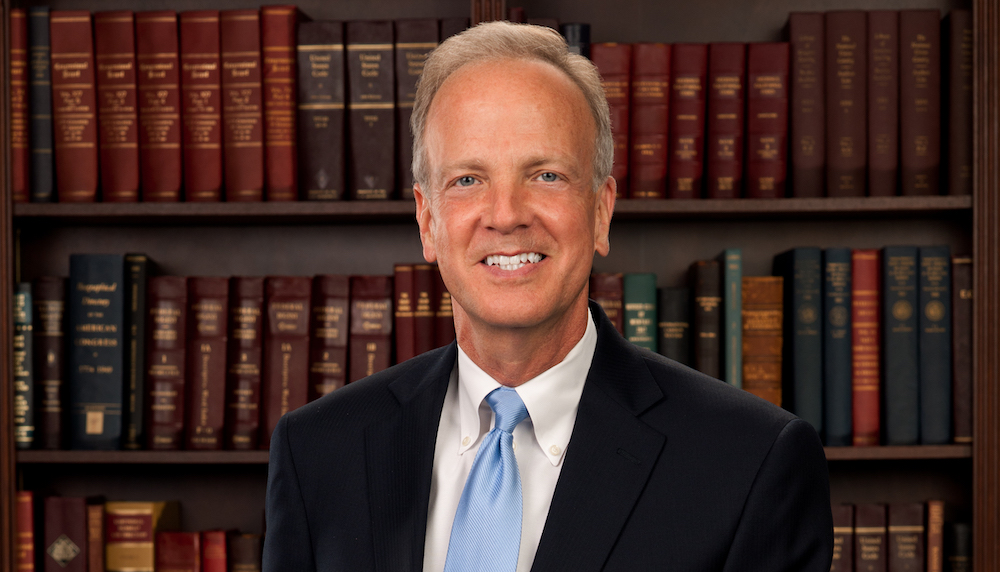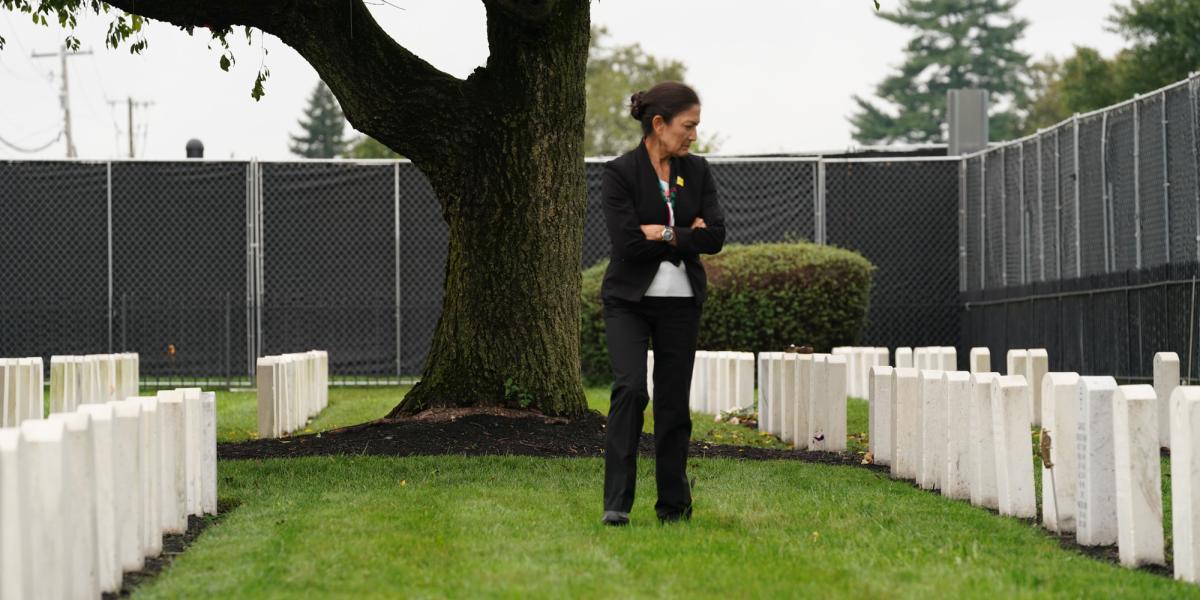
- Details
- By Native News Online Staff
President Joe Biden made history on the Gila River Indian Reservation last October with the first-ever formal apology from the U.S. government for the federal Indian boarding school system, where tens of thousands of Native children were forcibly sent to schools designed to erase their cultures and languages.
In a new blog post reflecting on the moment, Interior Secretary Deb Haaland (Laguna Pueblo), whose own grandmother was taken to a boarding school at age 8, called the apology one of the most significant accomplishments of the Biden administration's work to address this dark chapter in American history.
The text of the blog is below:
Of all of the work we have accomplished at the Department of the Interior under the Biden-Harris administration, one of the most significant has been the Federal Indian Boarding School Initiative.
In October at the Gila River Indian Community in Arizona, I listened as President Joe Biden issued a historic apology for the U.S. government’s role in creating and perpetuating the federal Indian boarding school system. As I listened, I remembered my grandma Helen recount the story of when she was taken away to St. Catherine’s Indian Boarding School in Santa Fe, New Mexico. She told me about the day a priest from the Pueblo of Laguna came to our village of Mesita, “gathered up the kids,” put them on a train, and sent them away. She was 8 years old at the time. Her parents had no idea when she would return home.
My grandfather Tony, who was from Jemez Pueblo, was also sent to St. Catherine’s. Helen and Tony spent five years at the same school – far away from their families, communities, and Pueblo cultures – and later chose to build a life from the bond they formed as children. Years later, their daughter Mary – my mother – would be sent to St. Catherine’s, too. I am here because of their persistence.
This trauma is not new to Indigenous people, but it is new to many people across our nation.
Federal Indian boarding schools have impacted every Indigenous person I know, including staff across our Department. While many of us cannot recount all the ways in which the legacy of these schools has affected our lives, my grandmother and my mother carried scars from that era that they passed down to me. This reality persists with many Native peoples, whether we attended a boarding school ourselves, or are descended from those who did. In memory of Helen, Tony, Mary, and all those impacted by our country’s horrific assimilation policies – I have sought to shed light on this legacy and leverage my platform to amplify the voices of those who deserve to be heard. Because Native American history is American history.
One of the reasons I launched the Federal Indian Boarding School Initiative was to ensure that this important story was told. That all of America knows of the intergenerational impacts of these policies, and that we – as a nation – take steps to heal from them.
Three years ago, our team embarked on a journey to bring to light this terrible era – one that is frequently excluded from history books. Interior staff – many of them Indigenous – worked through their own trauma to review over 103 million pages of federal records that informed the investigative report called for by the Initiative. That report outlined the number of schools, known attendees, and the extent to which teachers and priests denied children of their languages, cultures and lifeways. Based on available records, nearly 1,000 of those children died, though we believe the number to be much higher.
As part of the Initiative, Assistant Secretary for Indian Affairs Bryan Newland and I planned “The Road to Healing” – a year-long, 12-stop journey across Indian Country where we listened to and wept with survivors and descendants of these boarding schools. The stories I heard from survivors about getting beat with ropes and razor straps, and the stories of girls being molested in the dark of night, were difficult to hear in person. While in Alaska, an elder man spoke of a group of young Alaska Native boys who arrived at the boarding school from the Interior and who were dressed “magnificently in their caribou pants and shirts,” and carrying bags of dried fish and berries – nutritious food that would carry them through for a time - only to have their clothes and belongings torn from them and burned in a pyre.
Much of this horror took place at the then-named Carlisle Indian Industrial School in Pennsylvania, which from 1879 to 1918 served as the blueprint for boarding schools that would eventually open across the nation. Many of the children who died there are still buried on the school’s ground. In December, President Biden established the Carlisle Federal Indian Boarding School National Monument. Under the careful hands of the National Park Service – often called America’s storyteller – and in partnership with the U.S. Army who now manage the U.S. Army Carlisle Barracks, the history and horror of this place will never be lost or rewritten.
With the support of these partners and new agreements between the Department, the Library of Congress, and the Smithsonian’s National Museum of American History, our country will continue to learn from the voices and stories of those the federal government attempted – and failed – to silence.
When I began the Federal Indian Boarding School Initiative, I had no idea that it would result in a presidential apology, or even a national monument dedicated to our people. I just knew it was necessary.
The boarding school era worked to systematically break up entire communities, erase cultures and traditions, and eradicate Native languages. On the heels of the boarding school era, the Dawes Act and other harmful federal policies worked to outright steal land and resources from under the feet of our communities. Although we have made much progress, this heavy legacy endures, and more federal action is needed to address the wrongs of the past and allow our country to heal from the assimilation era.
This work is not finished. The pain and hardship of the past will not be corrected in our lifetimes. But the President’s actions and the work of the incredible team at the Department begins a new chapter and breathes new life into our shared building of a better future. Our past can never be re-written, but together, we can heal.
Can we take a minute to talk about tribal sovereignty?
Our mission draws from the warrior spirit that has sustained Indigenous peoples for generations — the same spirit that drives us to stand guard over tribal rights through relentless investigation and fearless reporting.
Sovereignty isn't just a concept – it's the foundation of Native nations' right to govern, protect our lands, and preserve our cultures. Every story we publish strengthens tribal sovereignty.
Unlike mainstream media, we center Indigenous voices and report directly from Native communities. When we cover land rights, water protection, or tribal governance, we're not just sharing news – we're documenting our living history and defending our future.
Our journalism is powered by readers, not shareholders. If you believe in the importance of Native-led media in protecting tribal sovereignty, consider supporting our work today.




